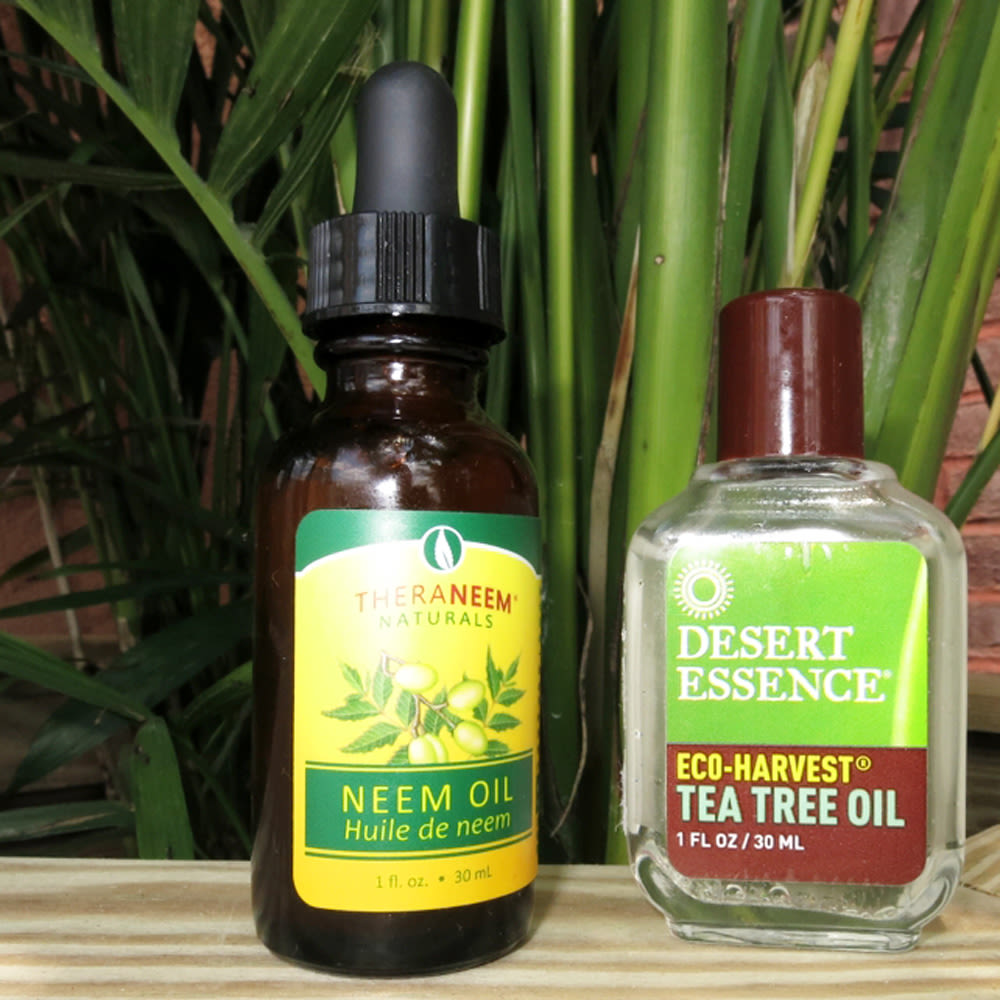The best treatment I've ever found for cystic acne (besides, you know, isotretinoin) is actually oil. Which I know sounds counterintuitive, because oil = acne, right? Not so, my friends. In fact, you can have extremely oily, completely clear skin. And plenty of people with very dry skin break out all the time. A pimple might have a ton of oil in it, but that's just because it's clogged, not because the oil actually created the problem. Acne is actually caused by bacteria (which are, in turn, often multiplying as a result of skin changes caused by the release of hormones), which is why antibiotics can often clear it up.
I highly encourage anyone whose skin is bothering them to visit a dermatologist, but if you don't want to/can't go the prescription route, here are a couple natural alternatives that work:
This hydrating, gentle anti-inflammatory/antimicrobial plant extract can be a huge help if you have cystic acne and/or dry, sensitized skin. Neem isn't exactly news to the rest of the world—in India, it's a drugstore staple right beside witch hazel and aspirin—but it's only recently become readily available in the US.
As far as I can tell, neem's only problem is its scent. The undiluted oil smells like a burned-diesel-fuel-and-peanut-butter smoothie. But here's the thing: there's no reason to stick with undiluted neem; it's effective even at low percentages. I love Evan Healy Neem Immortelle Purifying Infusion, which is herbal but not aggressive, and I've also experimented with adding a drop of pure neem to my moisturizer. And perhaps most serendipitously of all, another acne-fighter you've probably already heard of completely cuts the scent of neem. Which brings us to...
Perhaps the most popular acne-killing oil, tea tree is very effective and also, very, very aggressive (it's toxic if taken internally, so don't drink it). Some people can use it undiluted and have great results; I'm not one of them, hence mixing it with neem oil. It's amazing stuff, though—highly antiseptic, quick-absorbing, and just as effective as benzoyl peroxide (the literature suggests that it works more slowly than benzoyl, but is also less irritating for skin). People will tell you that tea tree oil cures all manner of stuff, but if we're being pragmatic it's only proven to kill bacteria and fungi without drying skin as much as the usual OTC medications—which is still pretty impressive.
I'm a vegetarian, so this isn't something on my to-try list, but I felt as though I should mention it because A) this is a site for everyone, and I respect that most other people don't feel the same way about animal products I do. And B) like Viviscal—another product I won't be trying because it's animal-based—emu oil really does appear to work. I've heard other people raving about the difference it makes for cystic acne, and studies suggest that it acts as an anti-inflammatory and promotes wound healing, which might be why it's so helpful for red, compromised skin.
—Lacey Gattis
Photo by Lacey Gattis.

